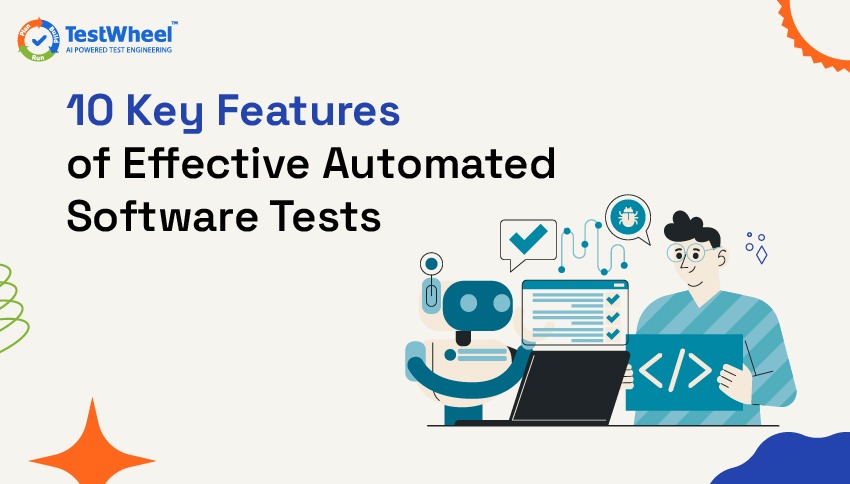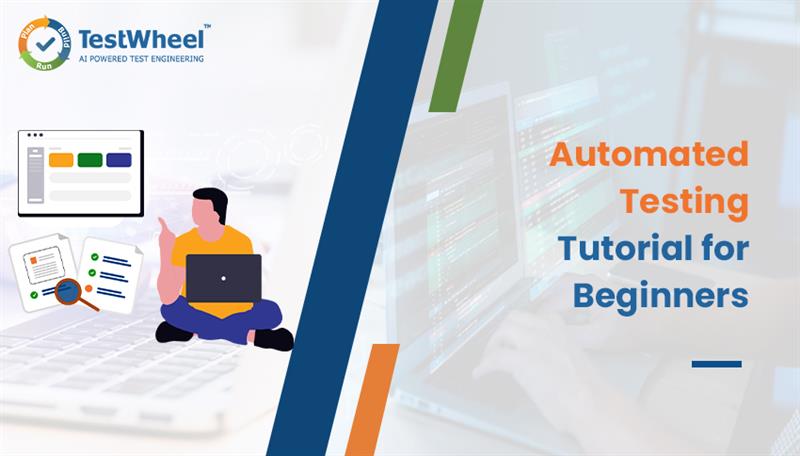-
June 17, 2025

In the current state of the Tech market, many companies are enacting cutbacks. Last quarter, Microsoft reduced its global workforce by 3% and according to True Up Tech Layoff Tracker, more than 70,000 people were impacted by layoffs so far in 2025. These trends are impacting development teams and software testers as well.
Because software testing is often seen as a less important part of the SLDC. hiring freezes or layoffs can make it nearly impossible to scale or accelerate QA efforts through traditional testing processes. Managers are being asked to do the same amount of test coverage but with less staff. Additionally, there is a challenge retaining the talented staff that meet high performance standards, and have the skills required to conduct effective manual testing. This is why many organizations are turning to AI and automated testing platforms so their teams can test more, with less resources, while consistently releasing better software.
The QA Talent Problem
One of the biggest challenges for QA managers today is finding the right talent. Managers often have a laundry list of requirements for their ideal candidate.
A typical job posting for a software tester would require skills like:
- SQL experience for backend testing
- Selenium scripting skills using Java
- Familiarity with CI/CD tools like Jenkins
- Knowledge of SDLC, STLC, Jira workflows
Regardless of how specific the list is, it’s rare to find someone who not only meets all the ideal hiring criteria but also fits within your payroll budget. Hiring managers are often forced to compromise, settling for underqualified testers or onboarding candidates who need a significant amount of training. And even after training, turnover remains a risk due to resignations or further cutbacks. As a result, QA leads are in a cycle of having to reorganize team responsibilities or increasing the workload of their remaining staff.
Expand Your Hiring Pool by Adopting Test Automation
One way to expand your pool of qualified candidates is to eliminate some of the technical qualifications for testers. This is where adopting a test automation platform helps by enabling managers to onboard and train users of all technical levels while still achieving high quality results.
However, not all automation platforms solve this issue. Many solutions claim to eliminate manual effort and save time, but there is often a steep learning curve. Teams frequently adopt automation platforms but end up spending months trying to learn the new tool, only to abandon it entirely and remain locked into an expensive yearly contract. In many cases, the learning curve was steeper than expected, making it easier to just stick with their existing manual testing processes.
This is why it is important, when seeking automated tools, to find an approachable platform, with a short learning curve and built for easy adoption like TestWheel. TestWheel is easy for non-technical users to learn. As an all-in-one no-code automation platform with AI-assistance, it helps teams accomplish more with less training, less technical expertise and fewer resources.
How TestWheel is built for Approachability:
- Excel based test cases written in plain English
- Easy adoption. Little to no programming experience required for users.
- Short learning curve for fast onboarding
TestWheel Adoption. Automation that Adapts to your Team. Not the other way Around

Adopting a new testing platform can feel like you and your team have to jump from one spinning hamster wheel onto another. You’re already mid-project, mid-sprint and trying to make existing deadlines. How does an entire testing staff switch tools and change their work process without losing momentum? TestWheel is built for ease of use with onboarding support to adapt to the way your team already works with the tools you’re currently using.
The platform is built with adoption in mind offering key features such as:
Dedicated Customer Support and Onboarding
TestWheel’s provides technical analysts who help setup the platform based on your testing strategy, train your team and provide ongoing support via email and virtual calls for troubleshooting and tutorials.
Script Conversion using AI
TestWheel’s next gen AI converts your existing test scripts into TestWheel’s test case format. No need to write Test Cases from scratch
Seamless Integrations
The platform integrates with your existing tool stack, including Jira, Azure DevOps, JMeter, and more with custom integrations available for your environment.
Helps Managers Solve Team Collaboration Challenges with Test Management
TestWheel’s built-in test management tool is designed to support managers across teams of all sizes. It integrates smoothly with existing CI/CD pipelines, reducing delays and project bottlenecks. From the TestWheel dashboard, managers can easily organize, update, and access test cases in one centralized location.
The test management feature offers folder organization, result logging, and multi-team coordination. While teams work on separate testing functionalities and execute and report on their own test cycles, managers gain full visibility through detailed pass/fail summaries, execution metrics, and failure tracking. With real-time notifications and test assignments, managers gain clear visibility into team workflows—eliminating the guesswork of tracking individual progress. This transparency helps identify gaps, redistribute workloads efficiently, and maintain productivity even with lean teams—solving common staffing challenges by doing more with fewer resources.
There are many other automation tools on the market such as Tricentis, TestGrid and Mabl. However, these tools are costly with contracts ranging up to 100k, 150k and even as much as 250k per year. Many organizations adopt these platforms but don’t end up actually using them, with manager’s citing that it takes them just as long to learn how to use the platform as they do running tests so the contract becomes redundant.
TestWheel, on the other hand, is easy to use and quick to learn. It reduces the technical skill requirements of new hires and accelerates their training. TestWheel not only shortens the adoption time for new team members but for your entire staff, allowing you to quickly leverage AI and automation in your testing.
The platform is accessible for any budget with affordable plans. Ranges include $10 a month per user for the basic version, $30 a month for the pro platform and affordable tailored custom quotes for the enterprise version based on your team size and testing requirements.
Economic uncertainty will always exist but digital transformation and demands for higher performing applications will always accelerate over time. Organizations can’t afford the delays of current testing models and staffing requirements that come with these demands for faster development cycles. As technologies change so will the need for teams to evolve as well. TestWheel helps teams stay agile, efficient, and resilient no matter what the market brings.



